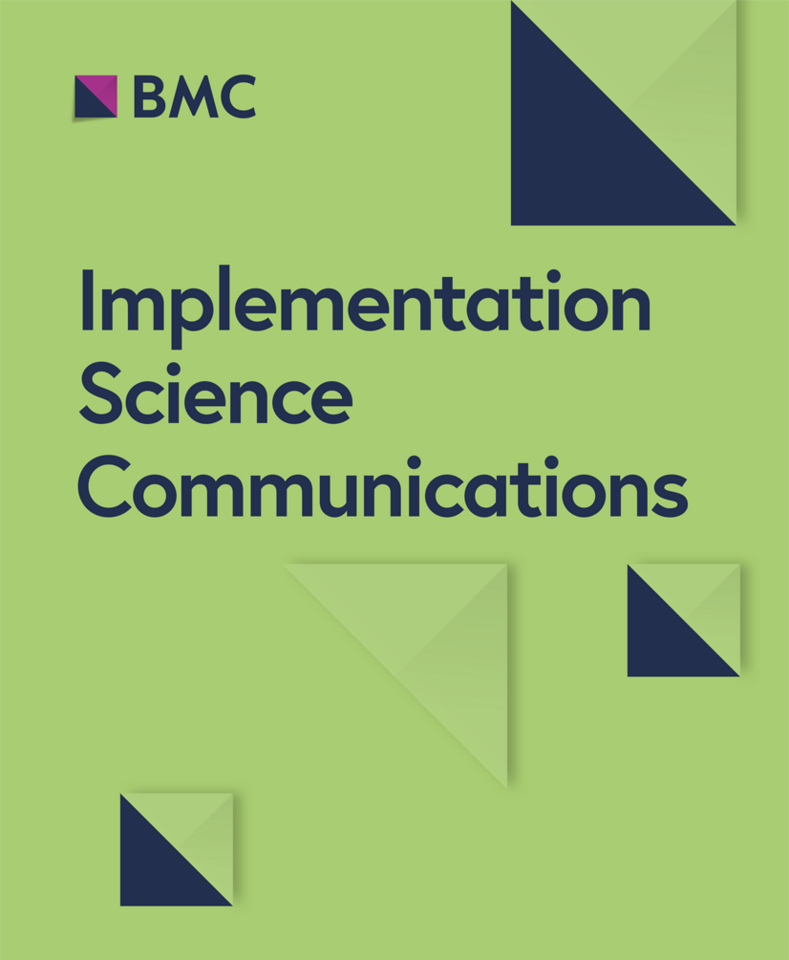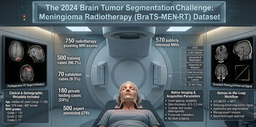Meet the Editor: Elvin Geng, our new co-Editor-in Chief for Implementation Science Communications
Published in Healthcare & Nursing, Sustainability, and General & Internal Medicine


Elvin stepped into the role of co-Editor-in-Chief for Implementation Science Communications in January of this year, joining Dong (Roman) Xu at its helm following the retirement from the position of the journal's Founding EiC Anne Sales. In this Q&A he discusses his own interests and research in the field, and his vision and hopes for taking the journal forward.
Please could you start by sharing a few details about your academic background, including your current position and research interests?
I’ve been institutionally based at Washington University in St. Louis since 2019, where I have two institutional roles.
I direct our new Center for AIDS Research, funded by the NIH and dedicated to translational science to improve our scientific response to HIV — a process in which implementation research is now center stage. I’m trained as an infectious disease physician and have worked on the public health HIV response for almost two decades. The response has been, frankly, an amazing story. I’ve worked in New York, San Francisco, China as well as in Kenya and Zambia. Though these contexts were very different, there is one remarkable constant: 20 or 30 years ago, if you walked into a hospital, you would see many cases of AIDS where people were quite ill or even dying. Today — due to decades of scientific progress and public health investments — this is relatively rare almost everywhere in the world. UNAIDS estimates that at least 80 million lives have been saved thanks to the global response to HIV. Despite this progress, we are not yet done – and there remain well over a million new infections a year. I think everyone working in HIV today recognizes that implementation research has a key contribution to make if we are to make progress. I feel privileged to have been a small part of this response and to witness such a remarkable history.
At this moment, in 2025 — however — we are truly facing a crisis in the global HIV response. A substantial portion of the global funding for HIV came from the U.S. government, through President George W. Bush’s signature initiative, the President’s Emergency Plan for AIDS Relief (PEPFAR) initialled in 2004. This stream of resources has been abruptly and sharply cut and has led to what is essentially an earthquake for health systems in many countries. Unfortunately, 2025 could be the year that decades of steady progress are reversed. That said, the HIV response has shown remarkable resilience over the last decades, driven by a global advocacy community and tireless public health agencies and actors. If the struggle succeeds, the response may regroup to become more robust and sustainable than ever before. But to do so, the world must act boldly and quickly in ways that are outside of the box. The scientific community — the implementation research community — must also be clever and nimble to provide the best support science-based support for this challenge.
In my role at Washington University, I have also directed of the Center for Dissemination and Implementation since 2019, when the founding director, Enola Proctor, retired. I’ve been privileged to be joined by my colleague Byron Powell as co-Director since 2023. Our work, with many other colleagues, is to champion the field of inquiry in our scientific community. This experience of providing research services (e.g., seminars, workshops, consultative services, pilot awards) is fascinating to me because I’ve had the opportunity to learn about many different fields and see how they are unified by implementation research. Implementation researchers are an amazing community, and I have been lucky to be working to further build this scientific area.
What are your scientific interests?
My current research interests revolve around three interconnected threads. First, I’m focused on formalizing the adaptivity that is inherent in healthcare practice. In healthcare, all practice involves trying something, observing the outcome, and then choosing a new course of action based on what happens. We’ve been conducting sequential randomization and other methods to better understand adaptation and its effects. Second, I’m exploring how person-centered healthcare practices can be explored as science. There’s always a lot of interest in the idea of person-centered public health and healthcare, but what does this actually look like in practice? How can we influence systems and organizations to deliver this kind of care, and how can we measure its effectiveness? Third, I’m interested in creating implementation approaches that value and uplift all individuals involved, rather than imposing external pressure to change on certain groups (whether they are communities or health care workers). This involves looking at bureaucracy, discretion, and care ethics.
You recently joined Implementation Science Communications as co-Editor-in-Chief. What attracted you to this role?
I’m excited to join Implementation Science Communications at this moment as Editor-in-Chief for many reasons!
First, I’m enthusiastic about the field of implementation research in general. It’s a young and growing field with exciting ideas. The opportunity to help shape the discourse through editing one of the leading journals in the field is very attractive to me. Working with the community of investigators to advance our collective thinking is incredibly exciting.
Sometimes I use a heuristic called the "explore-exploit" framework that captures the zeitgeist of the field and hope that this can also guide the spirit of the journal. This concept is drawn from other fields but refers to the idea that progress often involves a dynamic interplay between exploration—finding new ways of thinking about things—and exploitation—using what we know to gather or achieve a payoff or reward.
In implementation science, we could think of "explore" as the elements of the field that are conceptualizing, reconceptualizing, ideating, and looking to bring in concepts from other fields. On the other hand, "exploit" means applying the concepts, methods, and designs we already have to real-world topics, aiming for tangible results that could change the work of systems, organizations, healthcare workers, communities and providers. I think we’re in a unique position because we absolutely need both aspects to develop as a field. Exploration is exciting, but alone, the discourse becomes unfocused. “Exploitation” can help us achieve much needed impact but might foreclose on important conversations about how to conceptualize and study implementation that will help in the future. I hope I can help steer the journal to capture this dynamic in the field.
What is your vision for the journal?
Overall, I think the journal should strive to be investigator-centered. What does that mean?
I believe journals are here to serve researchers, but, too often, interacting with journals can be onerous and unpleasant. While this may not be easy to achieve, I want to work that the journal remains investigator-centered in a practical sense. This means quick turnaround times, rejections that come with potentially helpful comments, editors who are open to discussion, and an editorial team that takes every paper seriously and is willing to engage when needed. Success will be measured not only by how quickly we turn around papers but also by the experience of the investigators, regardless of whether their papers are ultimately published or rejected.
In addition, we need to ensure that we publish papers that contain insights for the field and therefore advances our thinking. First, I think it’s important to produce insights that go beyond just one disease condition. We should be looking to generalize and apply findings across different contexts, even if it is just in the discussion of implications of findings. Second, we must continue to evolve our conceptualizations of what’s happening, moving beyond developing lists to developing novel, potentially somewhat generalizable explanations. I would also like to see the journal and its publications interact deeply with other disciplines and integrate interdisciplinary insights.
And finally, what advice would you give to early career researchers and/or students interested in implementation science?
In terms of advice for early-career researchers, I would say that if you're interested in implementation research, follow what you’re passionate about! Research isn’t an easy career, especially at this moment, but you do get at least three relatively unique things from it. First, you get to spend a lot of your time thinking about ideas— and in implementation science these are ideas that have relevance to practice and policy. Second, you get to work with a community of brilliant, restless people who want to make the world a better place through scientific contributions. Lastly, be committed and unafraid of lifelong learning. In a field such as implementation science we all need to continue to learn and to do so together many decades after our formal training! Overall, implementation research is a great place to be, and I encourage anyone excited about this field to dive in.
Follow the Topic
-
Implementation Science Communications

An official companion journal to Implementation Science and a forum to publish research relevant to the systematic study of approaches to foster uptake of evidence based practices and policies that affect health care delivery and health outcomes, in clinical, organizational, or policy contexts.
Related Collections
With Collections, you can get published faster and increase your visibility.
Advancing the Science and Metrics on the Pace of Implementation
The persistent 17-year span between discovery and application of evidence in practice has been a rallying cry for implementation science. That frequently quoted time period often implies that implementation needs to occur faster. But what do we really know about the time required to implement new evidence-based practices into routine settings of care. Does implementation take 17 years? Is implementation too slow? Can it be accelerated? Or, does a slower pace of implementing new evidence-based innovations serve a critical function? In many cases—pandemics, health inequities, urgent social crises—pressing needs demand timely implementation of rapidly accruing evidence to reduce morbidity and mortality. Yet many central tenets of implementation, such as trust, constituent inclusion, and adaptation, take time and may require a slow pace to ensure acceptability and sustained uptake.
To date, little attention and scant data address the pace of implementation. Speed is a rarely studied or reported metric in implementation science. Few in the field can answer the question, “how long does implementation take?” Answering that question requires data on how long various implementation phases take, or how long it takes to achieve implementation outcomes such as fidelity, adoption, and sustainment. Importantly, we lack good data on how different implementation strategies may influence the amount of time to achieve given outcomes.
To advance knowledge about how long implementation takes and how long it “should optimally” take, this collection seeks to stimulate the publication of papers that can advance the measurement of implementation speed, along with the systematic study of influences on and impacts of speed across diverse contexts, to more adequately respond to emerging health crises and benefit from emerging health innovations for practice and policy. In particular, we welcome submissions on 1) methodological papers that facilitate development, specification, and reporting on metrics of speed, and 2) data-based research (descriptive or inferential) that reports on implementation speed metrics, contextual factors and/or active strategies that affect speed, or the effects of implementation speed on important outcomes in various contexts.
Areas of interest include but are not limited to:
• Data based papers documenting pace of moving through various implementation phases, and identifying factors (e.g., implementation context, process, strategies) that affect pace of implementation (e.g., accelerators and inhibitors)
• Data based papers from multi-site, including multi-national, studies comparing pace of innovation adoption, implementation, and sustainment across various contexts
• Data based papers reporting time to implementation in the face of urgent social conditions (e.g., climate change, disaster relief) Papers on how to accelerate time to delivery of treatment discoveries for specific health conditions (e.g., cancer, infectious disease, suicidality, opioid epidemic)
• Data based papers on the timeliness of policy implementation, including factors influencing the time from data synthesis to policy recommendation, and from policy recommendation to implementation
• Span of time needed to: achieve partner collaboration, including global health partnerships adapt interventions to make them more feasible, usable, or acceptable achieve specific implementation outcomes (e.g., adoption, fidelity, scale-up, sustainment) de-implement harmful or low-value innovations, or to identify failed implementation efforts
• Effect of implementation pace on attainment of key outcomes such as constituent engagement, intervention acceptability or sustainability, health equity, or other evidence of clinical, community, economic, and/or policy benefits.
• Papers addressing the interplay between pace and health equity, speed and sustainability, and other considerations that impact decision-making on implementation
• Methodological pieces that advance designs for testing speed or metrics for capturing the pace of implementation
• This Collection welcomes submission of a range of article types. Should you wish to submit to this Collection, please read the submission guidelines of the journal you are submitting to Implementation Science or Implementation Science Communications to confirm that type is accepted by the journal you are submitting to.
• Articles for this Collection should be submitted via our submission systems in Implementation Science or Implementation Science Communications. During the submission process you will be asked whether you are submitting to a Collection, please select "Advancing the Science and Metrics on the Pace of Implementation" from the dropdown menu.
• Articles will undergo the standard peer-review process of the journal they are considered in Implementation Science or Implementation Science Communications and are subject to all of the journal’s standard policies. Articles will be added to the Collection as they are published.
• The Editors have no competing interests with the submissions which they handle through the peer-review process. The peer-review of any submissions for which the Editors have competing interests is handled by another Editorial Board Member who has no competing interests.
Publishing Model: Open Access
Deadline: Jun 30, 2026



Please sign in or register for FREE
If you are a registered user on Research Communities by Springer Nature, please sign in